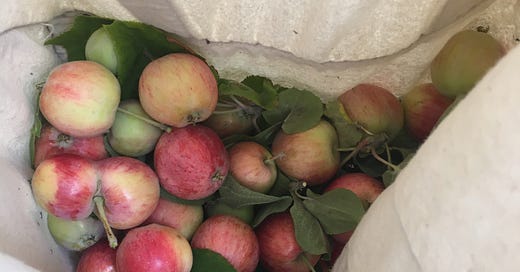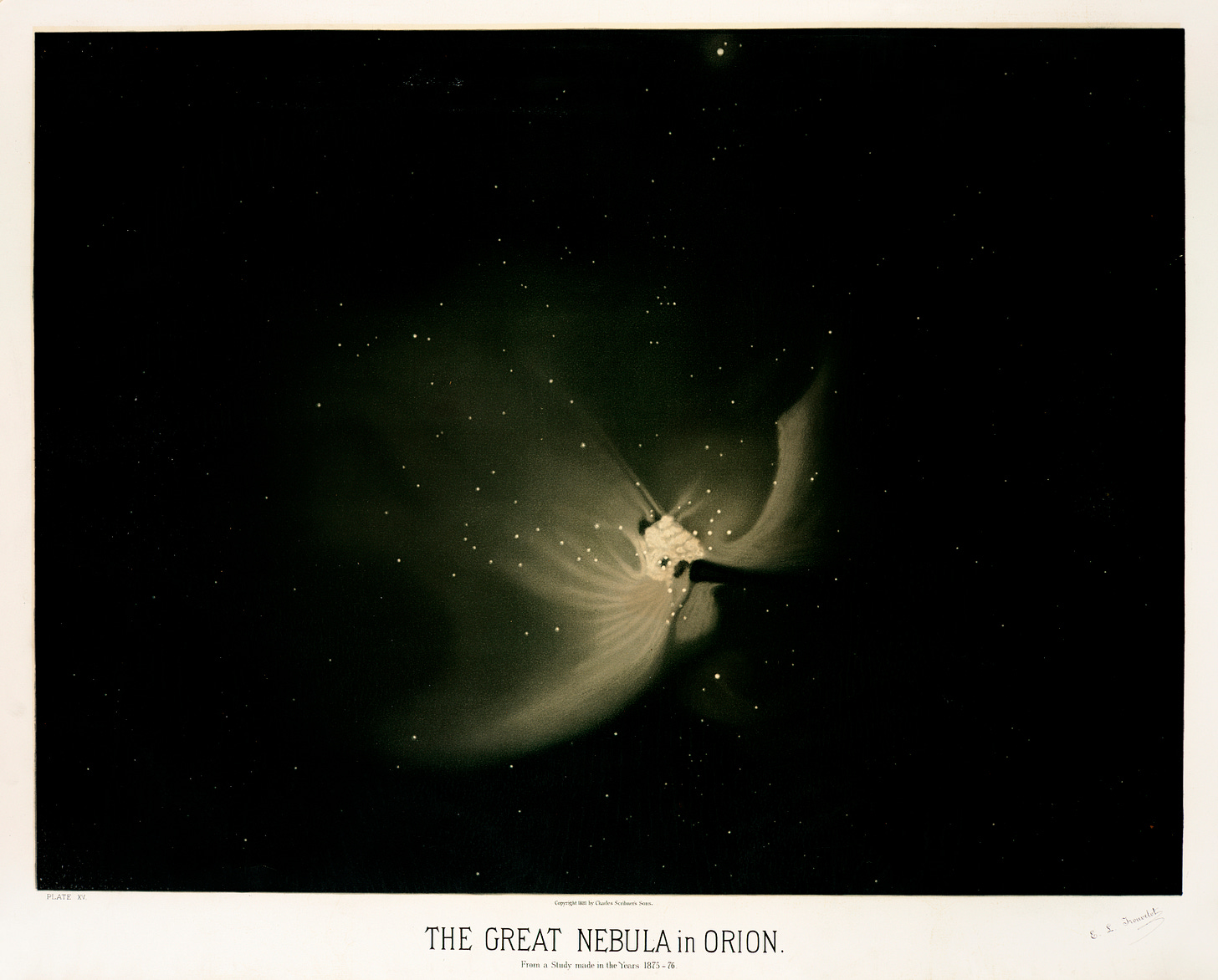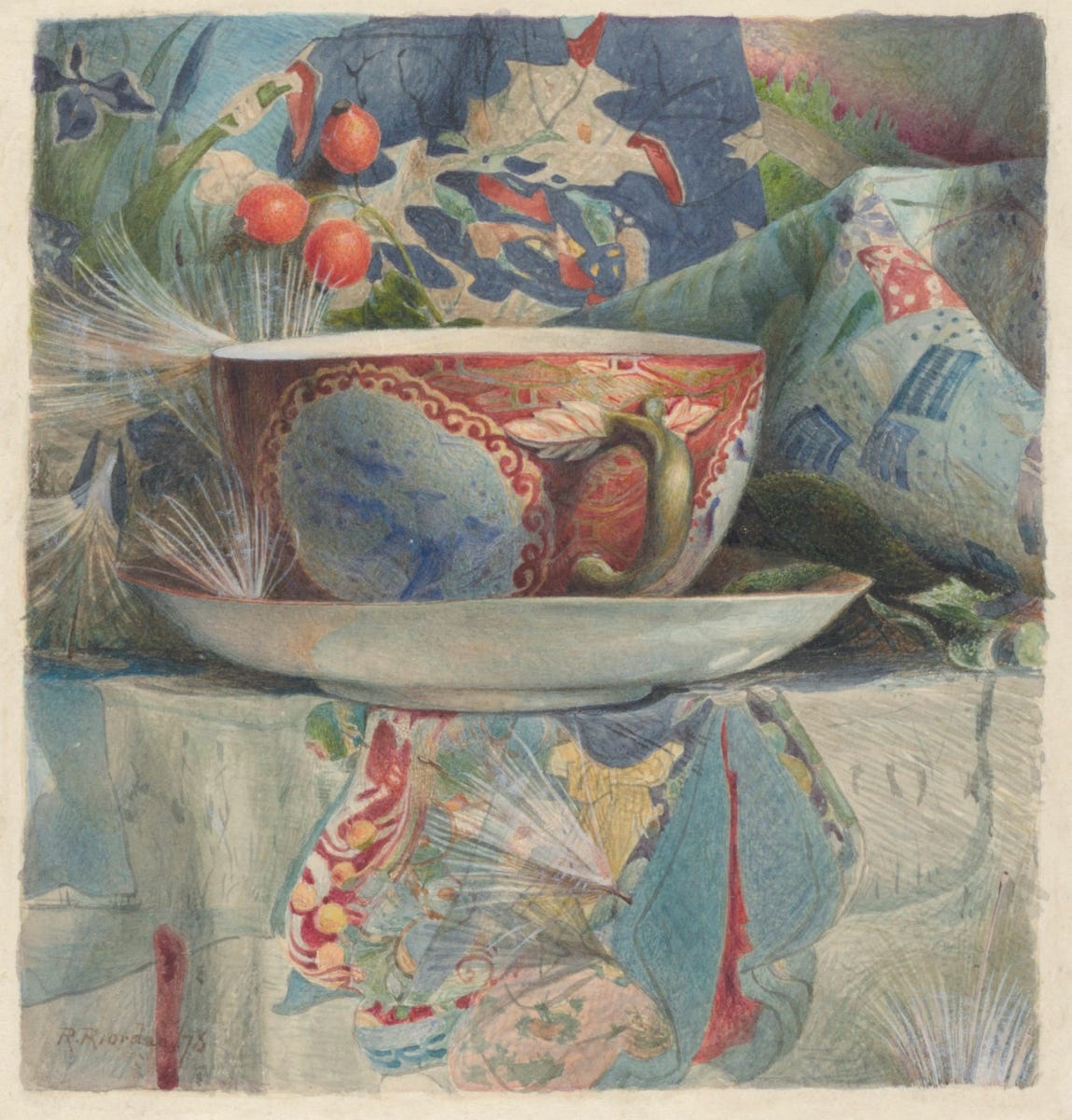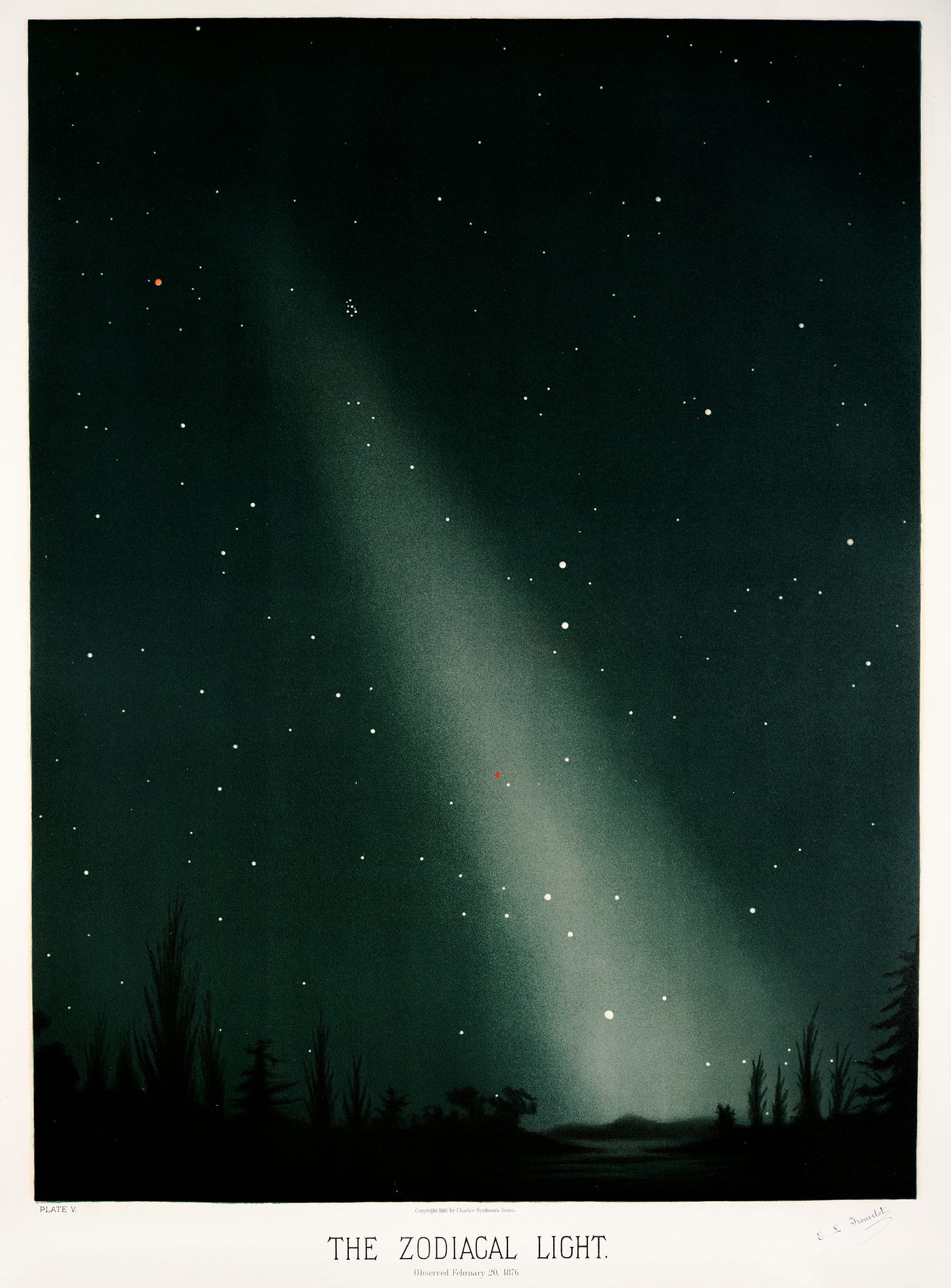Recently I have been thinking about the skill of articulation.
Particularly because I have been growing rusty at conversation. I want to learn how to talk with more clarity of thought. Lean less on stock phrases and cliches that often seem like easy substitutes for trying to dig up and translate real thoughts and ideas that swim like whales underneath the water of my mind.
This is a gathering of foraged ideas in a basket. They haven’t been taken out, organized, or rearranged like a quilt yet.1 But here they are; I hope you find an idea or a delicious morsel to savor.
There is a quote about writing, and for the life of me, I can’t find it anywhere. (Please let me know if you remember how it goes and who it’s from.)
The gist is this: “Writing is easy. All you have to do is choose the right words and put them in the right order.” Usually, this is followed by a laugh, a rueful raised eyebrow, and a sigh.
Here is Becky Castle Miller on the theory of constructed emotion, defining some terms:
“A feeling is more of a physical sensation. You can feel cold, you can feel hungry, you can feel your heart beating faster, you can feel your stomach churning. But that is not an emotion.”
“Emotion is the meaning that our minds make from our feelings, our sensations, our circumstance at the moment, our past experiences, the emotion concepts we’ve learned from our culture […]
“So when we see something that we know is dangerous and we construct fear, even before we’ve really consiously said, ‘I’m feeling afraid,’ our body has already started to increase adrenaline production, and to dilate our pupils, and to prepare our muscles to leap out of the way. So emotion is part of what prepares us for action and part of what motivates us in life.”
(On this podcast episode.)
Alright. Here’s where it applies to interpersonal communication, emotional health, and writing brilliant novels:
“As we increase in what [Dr. Lisa Feldman Barrett] calls our emotional granularity, like our emotion vocabulary, our ability to fine-tune and distill what we are feeling, the more words we have for emotion, the more emotionally healthy we are.
“Because then I can distinguish between, ‘I’m mad,’ or ‘I’m angry,’ or ‘I’m irate,’ or ‘I’m irritated,’ or ‘I’m angsty,’ or ‘I’m wrathful,’ or ‘I’m full of rage'—there are so many gradations of anger, so the more words we have, the better we can communicate what we’re feeling.” #
This podcast episode with Marilyn McEntyre.
Sometimes I’d rather communicate through music or drawings than do the work to translate thoughts or feelings into words when talking.
Perhaps that is a sign that the words being used most often are empty. Tired. They have become meaningless.
Maybe the solution is to focus on words, to gather, dust off, practice, use them more intentionally, and enjoy their feel and etymologies. #
Interpersonal communication is a learned skill, like knitting with five needles or gardening in a new-to-you region.
Hopefully none of these roots and berries are poisonous, because I think there’s plenty more to learn here.
Have ye a merry weekend. 🐛
Songs and Parsley Shakers
Sometimes people say really silly things,2 and you can either be annoyed or channel that energy into making a silly song based on real words spoken by real young men:
3 Things from This Week:
Perfectionism or procrastination about writing? This may help.
Where Were You? This song.
🌌🐢🪐
Quote: 🏹📜🌻
"Beauty doesn’t take away the pain of suffering or vulnerability. It’s not like cicada song or good coffee make it hurt any less to lose a spouse or a friendship, or even just to have a hard day. But in the times when we think anguish and dimness are all there is in the world, that nothing is lovely or solid, beauty is a reminder that there is more to our stories than sin, pain, and death. There is eternal brilliance. It’s not quite enough to resolve our questions or tie anything up in a nice metaphysical bow, but sometimes it is enough to get us through the next hour. And in enduring a mystery, we need just enough light to take one more step."
— Tish Harrison Warren #

Yes, Abbi, spoiler alert for your letter. It’s at 4 1/2 pages and a mess. But a cute mess.
No offense to any complementarians who love the ESV. I get it. However, it is helpful to learn the cultural context and particular biases of the people behind a translation. See The Making of Biblical Womanhood by Beth Allison Barr, PhD. As with any translation, cross-reference and learn more about the original languages #. We don’t have to know everything. That’s not our job. It is good to sit in the hard questions.









